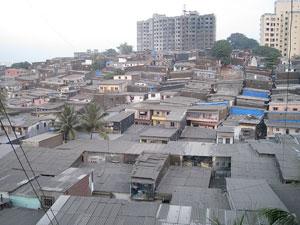Global asbestos trade: dangerous and growing
(Image by Kaustav Bhattacharya (cc:by-nc-nd))
This story was originally covered by PRI's The World. For more, listen to the audio above.
Many rich countries have cracked down on asbestos because it is known to cause cancer. In the United States, it is used in very few products including vehicle breaks and gaskets, and the industry has paid out some $70 billion in damages and litigation costs. In the European Union, asbestos is banned. Instead of going away, asbestos has gained new life, and is now being used widely in developing countries like India and Mexico.
"When asbestos was banned in industrialized countries and [producers] started to lose money, they came to the developing countries to recover their investments,” Dr. Guadalupe Aguilar Madrid told the Center for Public Integrity (CPI). More than 2 million metric tons were mined in 2009, according to the report, and much of that was turned into building materials like roofs and water pipes.
The industry claims that the white asbestos, also known as chrysotile, that is currently sold on the market is much safer than the brown or blue asbestos that was once sold as recently as the 1990s. They argue that it's safe, so long as it's carefully handled. One problem, CPI reporter Steve Bradshaw told PRI's The World, is that many doubt the industry's ability to monitor asbestos use worldwide.
"Is there a legitimate scientific question as to whether white asbestos is less dangerous [than blue or brown]? Yes," Dr. Arthur Frank, a physician and professor at the Drexel University School of Public Health in Philadelphia told the CPI. "But is it safe? No."
Advocates claim that they are simply offering consumers a choice of products to buy. John Hoskins, a scientist who works with The Crysotile Institute, believes that the health dangers are negligible. In fact, he told the CPI that "the people who would like to ban chrysotile asbestos are actually committing economic damage" especially to people in the developing world.
"It all comes down to a risk benefit analysis," Bradshaw told The World. Asbestos is currently being blamed for about 100,000 deaths each year. And, according to the CPI, "some scientists predict that asbestos will take up to 10 million lives worldwide by 2030."
For public health advocates, the issue is settled: "No exposure to asbestos is without risk," the Collegium Ramazzini, an international society of scholars on occupational and environmental health, said in a recent paper. "Asbestos cancer victims die painful, lingering deaths. These deaths are almost entirely preventable."
PRI's "The World" is a one-hour, weekday radio news magazine offering a mix of news, features, interviews, and music from around the globe. "The World" is a co-production of the BBC World Service, PRI and WGBH Boston.
Every day, reporters and producers at The World are hard at work bringing you human-centered news from across the globe. But we can’t do it without you. We need your support to ensure we can continue this work for another year.
Make a gift today, and you’ll help us unlock a matching gift of $67,000!
